What's New
Displaying results 1671 - 1680 of 4922
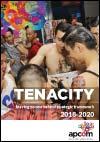
Resource | Publications,
Taking a bold, ambitious and tenacious approach to building a more effective response to the health and rights of gay men, other men who have sex with men and SOGIESC* people in Asia and the Pacific is the focus of our new 2018-2020 strategic framework.
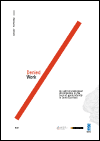
Resource | Publications,
Discrimination and lack of equal employment opportunities are common experiences of trans people. For some, problems arise while they are already employed, especially when they are trying to engage in a social transition in the workplace. For many, however, problems arise at the job hiring stage. Identification documents and educational certificates often ‘out’ trans people, even when their physical appearance does not. With employers either prejudiced or anxious about the possible reactions of co- workers and customers, trans people don’t get hired.
This report looks into employment discrimination faced by transgender people while seeking employment in four countries in South-East Asia – Malaysia, Singapore, Thailand, and Vietnam. The findings from this study provide direct evidence of discrimination against trans people in job hiring practices in the region.
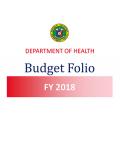
Resource | Laws and Policies,
The Department of Health FY 2018 Budget Portfolio aims to provide an overview of the mandate of this Department, its health sector goals and objectives, strategic thrusts, and the salient features of the proposals for major budget line items in the 2018 proposed budget. It also aims to provide details on key objectives and performances of funded programs of the Department.
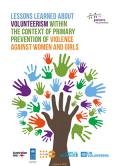
Resource | Publications,
This report reviews and assesses the impact Volunteerism has on personal and community development. Volunteerism and volunteers can make valuable contributions to sustainable VAWG prevention in communities. However, to reap these benefits, it is important to manage and actively support them throughout the project acknowledging the important role that they play.
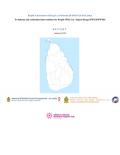
Resource | Publications,
Research on details of the pattern of drug use among People Who Use Drugs (PWUD) and People Who Inject Drugs (PWID) in Sri Lanka is relatively scarce. In order to initiate interventions aimed at reduction of risks due to drug use in the country, adequate information about the pattern of drug use is critical. Thus, the NSACP along with NDDCB has conducted this “Rapid Assessment of Drug Use Pattern (RADUP) in Sri Lanka to inform risk reduction interventions for PWUD/PWID.” The Alliance Regional Technical Support Hub South Asia provided technical support. The study was aimed at (i) understanding the pattern of drug use among the non-institutionalized PWUD and PWID in selected districts in Sri Lanka and (ii) recommending policies and programmes related to drug use issues in Sri Lanka.
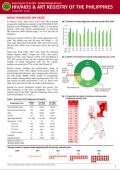
Resource | Fact Sheets,
In January 2018, there were 1,021 new HIV antibody seropositive individuals reported to the HIV/AIDS and ART Registry of the Philippines (HARP) [Table 1]. Seventeen percent (169) had clinical manifestations of advanced HIV infection (WHO clinical stage 3 or 4) at the time of diagnosis.
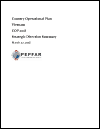
Resource | Publications,
The PEPFAR Vietnam Country Operational Plan (COP) 2018 establishes a bold, aggressive strategy to enroll 14,500 new antiretroviral therapy (ART) patients, retain 84,300 on treatment, and achieve 95 percent viral suppression in two regions. The Northern Economic Zone (NEZ) includes Hanoi, Hai Phong, Quang Ninh and Thai Nguyen. The Ho Chi Minh City (HCMC) metropolitan area (henceforth referred to as HCMC Metro) includes the southern provinces of Ba Ria-Vung Tau, Binh Duong, Dong Nai, Long An, Tay Ninh and Tien Giang, and HCMC itself.

Resource | Publications,
This small scale research project which included an online survey and 4 Focus Group Discussions (FGD) was conducted by Youth Voices Count (YVC) with the support of UNICEF East Asia and Pacific Regional Office in order to explore the preparedness and willingness of adolescent gay, MSM and transgender women to use Pre-Exposure Prophylaxis (PrEP) as an additional prevention method to protect themselves from HIV. The online survey was disseminated in Bangkok, Ho Chi Min, Jakarta and Manila through online platforms and the FGDs were conducted in the same cities with 5–7 gay, MSM and transgender female adolescents between the ages of 15–19.
83% of the adolescents who participated in the online survey mentioned that they are willing to use PrEP as an additional prevention method to protect themselves from HIV. The output of FGDs revealed similar insights. The factors that contribute to PrEP acceptability among adolescents include the ability to engage in safer sex with PrEP, cost-free provision of PrEP, community and family support and friendly and confidential sexual health services.
As challenges to using PrEP to avoid HIV infections, the participants of the online survey and the FGDs recognized lack of awareness of PrEP among adolescents, disapproval from parents, stigma and discrimination associated with key populations, unfriendly sexual health services, general lack of personal health-seeking behaviors, and difficulties in adhering to a daily pill.
The adolescents recognized two key sources of accessing information on PrEP. These include (1) Internet – social media platforms and websites and (2) Community organizations. They also recognized community service delivery points including community led clinics as their preferred point of accessing PrEP and other required testing for PrEP.

Resource | Publications,
Far too often, millions of uprooted children and young people are invisible in data. They face discrimination and isolation as they seek to make new lives for themselves. Many do not have access to national or local services and fall through the cracks of child protection systems as they cross borders. Indeed, data are scarce, and little is known about their health, their education, or how migration affects their futures.
Too often, they are talked about, but rarely are they listened to. This new poll provides an opportunity to listen.
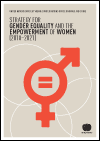
Resource | Publications,
The present Strategy for Gender Equality and the Empowerment of Women (2018–2021) establishes the first institutional framework on gender equality for the United Nations Office at Vienna/United Nations Office on Drugs and Crime (UNOV/UNODC). One of its aims is ensuring that United Nations standards to promote and achieve gender equality are met. It provides a systematic framework that sets institutional standards and defines commitments on gender equality and the empowerment of women for the period 2018–2021.





